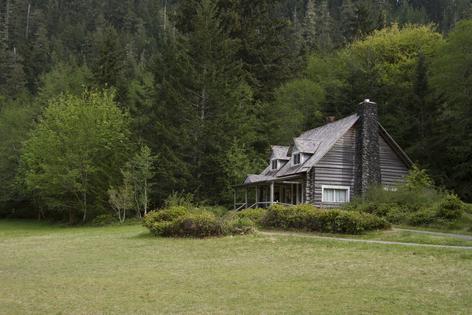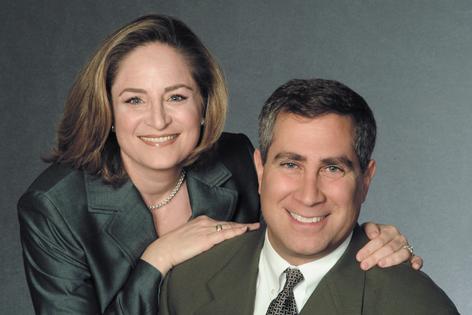Couple has trouble splitting two lots to build second cabin
Q: My daughter and son-in-law bought a cabin as their second/vacation home near Seattle a couple of years ago. The property is actually two lots (with two separate tax parcels). And, the cabin is on one of the lots.
There is one deed and one mortgage. They are thinking of building another cabin (for investment) on the second lot and would like to get a construction loan to build the new cabin. But they can’t get one because of the single deed and mortgage for the property. They spoke to a lawyer who basically said talk to the bank. The bank said they couldn’t help them unless they buy out the mortgage entirely.
Do you have any ideas of how to split up the two lots? They may want to sell one in the future.
A: We need to give you a two-part answer to your question. The first part has to do with the number of buildable lots your daughter actually owns.
Does she own one lot (with one deed, that might be the case) or two separate lots (two tax parcels might indicate this is true)? Is the local building code the problem? We wrote about this issue not so long ago, and she may glean some additional information on splitting lots there.
For the purposes of this column, we’re going to assume that she has two buildable lots. So, if we assume that she can build two homes on her land — one home on each lot — but isn’t, then the question is why not?
We suspect that your daughter has a very low interest rate loan on the entire property that she must have secured before interest rates jumped up. And, now, she is understandably hesitant to give it up.
As a quick example, if she purchased Lot 10 and Lot 11 of a subdivision somewhere in Seattle, and the cabin was built on lot 10, she’d have lot 11 to use to build another home. Both Lot 10 and Lot 11 are distinct lots with their own tax parcel identification numbers and both lots have a distinct area in which you can build a home.
To finance the building of the Lot 11 property, she’d have to get rid of the low interest rate loan she used to buy the property. Why? The lender used both lots as collateral for the loan. If she had obtained that first loan using only the cabin and the lot on which the cabin is located, she wouldn’t have this problem.
When the lender put a lien on both lots, they tied up the entire property with their mortgage. If she refinances the loan and takes out a new mortgage using only the cabin and the lot on which the cabin sits, she could get a construction loan to build a cabin on the second lot.
She could also see if her current lender would be willing to release the lien on the second lot. Sometimes a lender will do this if you pay a certain amount of money. While the lender already told her that they wouldn’t release one of the lots, she can always ask them to release the vacant lot with an appraisal of the two properties. This would help determine the value of each lot and the cabin. This might free up a path to release the vacant lot.
The lender may say that the second lot is worth $100,000. If she pays down the existing loan by $100,000, the lender would release the lien on the vacant lot. She may have to go through some hoops to get the lender to agree to this strategy, and some lenders may not agree at all, but it’s worth a try.
But if she doesn’t have the $100,000 to pay down the loan, she’d be out of luck unless she was able to convince a new lender to refinance the old loan with a new loan tied to the cabin and the lot on which the cabin is on as the only collateral for the loan. But, this may raise the interest rate she’s paying.
Her ultimate objective is to have the current lender release their lien on the vacant lot. Another option is to get a home equity line of credit on the property. She’d have to see, given current interest rates, how much money a lender would give her and whether that would be enough for her to build that second cabin.
========
(Ilyce Glink is the author of “100 Questions Every First-Time Home Buyer Should Ask” (4th Edition). She is also the CEO of Best Money Moves, a financial wellness technology company. Samuel J. Tamkin is a Chicago-based real estate attorney. Contact Ilyce and Sam through her website, ThinkGlink.com.)
©2024 Ilyce R. Glink and Samuel J. Tamkin. Distributed by Tribune Content Agency, LLC.

































Comments